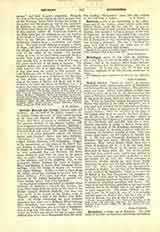

Bethel (Heb. BYT-AL, “house of God“), an ancient Canaanitish town, twelve miles north of Jerusalem, not far from Silo on the way to Sichem. The primitive name was Luza. Abram twice offered sacrifice east of Bethel (Gen., xii, 8; xiii, 3). In these passages the name of Bethel is used by anticipation, as it was given to the town by Jacob after his vision (Gen., xxviii, 19). When the Israelites entered the promised land, Bethel was allotted to the tribe of Benjamin, but it was taken and occupied by the Ephraimites (Judges, i, 22-26). It was a place of importance in the subsequent history. Here the Israelites in the days of the Judges were wont to consult the Lord (Judges, xx, 18; 26; xxi, 2; the phrase “in Silo” added in these texts by the Vulgate is a mistake) and the Ark of the Covenant was probably here for a time. Samuel was wont to judge in Bethel every year. After the division of the kingdoms Jeroboam desecrated the place by erecting a golden calf and introducing the Egyptian worship of Apis. This continued until Israel was led captive to Assyria (IV K., x, 29) and was frequently denounced by the prophets Osee and Amos. Shortly before his assumption, Elias visited Bethel, where there was a. school of prophets (IV K., ii, 2, 3); the boys from the town mocked Eliseus on his return and were destroyed by bears (ibid., 23). One of the priests who had been carried away captive was allowed to return somewhat later and dwelt in Bethel to teach the people (IV K., xvii, 28). Great confusion of idolatrous worship sprang up, until Josias finally destroyed the altar and the high place there (IV K., xxiii, 15). After the Captivity, the Benjaminites returned to Bethel. In the time of the Macchabees, it was fortified by Bacchides. There is no mention of Bethel in the New Testament, but Josephus records that it was taken by Vespasian (Bell. Jud., IV, ix, 9). Eusebius mentions the place as a village. It is commonly identified nowadays with Beitin. The ruins of several Christian churches on the spot would indicate that in the Middle Ages it had again grown to some importance. The name “Bethel” is also read in Jos., xii, 16 and I K., xxx, 27; it is probably another name for Bethul (Jos., xix, 4), a city of the tribe of Simeon, the site of which is uncertain.
JOHN CORBETT

